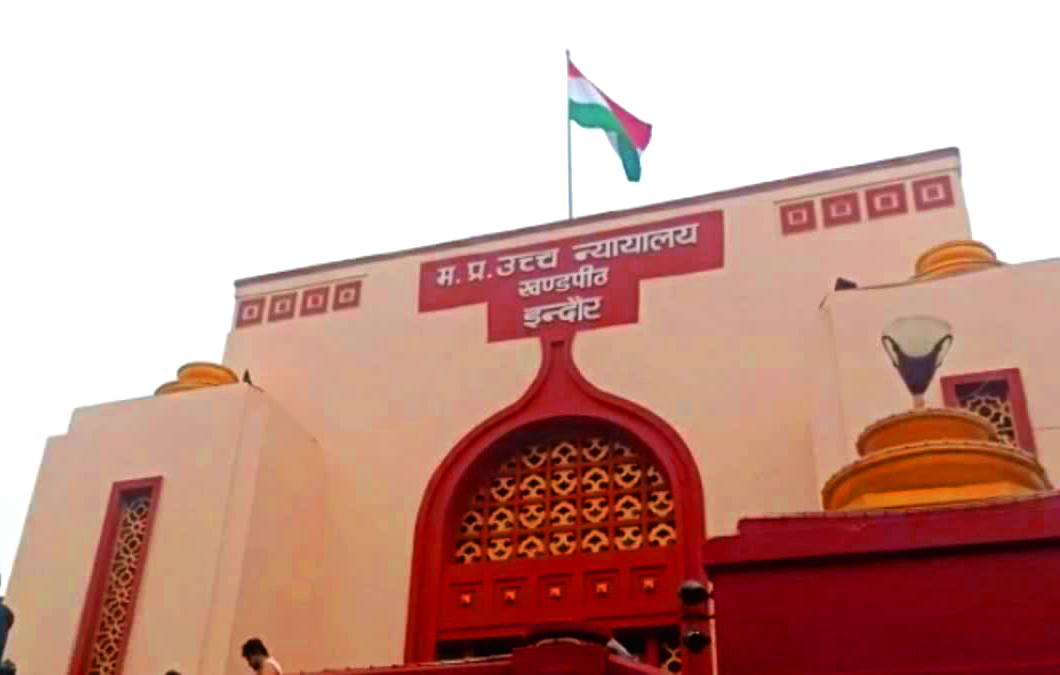
History of High Court of Madhya Pradesh; Indore
The High Court of Madhya Pradesh, Indore Bench was established on November 1, 1956, by the order of the President of India. Before the establishment of the High Court of Madhya Pradesh, the state of Madhya Pradesh was a part of the judicial jurisdiction of the High Court of Nagpur.
After India gained independence from British rule in 1947, the Indian Constitution was adopted in 1950. According to the Constitution, every state in India must have a High Court, which will have the power to hear appeals and writ petitions from subordinate courts within its jurisdiction.
The present state of Madhya Pradesh was originally created as Central Province on 2/11/1861, as Judicial Commission’s territory and was placed under the administration of Judicial Commissioner. At that time, the Judicial Commissioner’s Court at Nagpur was the highest Court of the territory. When the Central Province was converted into a Governor’s province in the year 1921, it became entitled to a full-fledged High Court for administration of Justice. However, financial & administrative difficulties, resulted in denial of a High Court to the province, for a period of about 15 years. In the year 1933, Berar, hethertofore a part of Nijam’s state of Hyderebad, was transferred to the Central Province, for administration. This gave the state its new name “Central Provinces & Berar”. Thereafter, by virtue of the Letters Patent dated 2nd of January 1936, issued under Section 108 of the Government of India Act, 1915, by King Emperor, George the Fifth, Nagpur High Court was established for Central Provinces & Berar. The Letters Patent, whereunder the Nagpur High Court was constituted and invested with jurisdiction, continued in force even after adoption of the constitution of India on 26th of January1950, by virtue of articles 225 & 372 thereof.
On 1st of November 1956, the States Reorganization Act was enacted and the new state of Madhya Pradesh was constituted under section 9 thereof. Sub-section (1) of Section 49 of the States Reorganization Act ordained that from the appointed day i.e., 1st of November 1956, the High Court exercising jurisdiction, in relation to the existing state of Madhya Pradesh, i.e. Nagpur High Court, shall be deemed to be the High Court for the present state of Madhya Pradesh. Thus, Nagpur High Court was not abolished but by a legal fiction it became The High Court for the new state of Madhya Pradesh, with its Principal seat at Jabalpur. The Chief Justice, vide order dated 1st of November 1956, issued in the exercise of powers under sub-section 3 of the States Reorganization Act, constituted temporary benches of the High Court of Madhya Pradesh at Indore and Gwalior. Later, by a Presidential Notification Dt. 28th of November 1968, issued in the exercise of the powers conferred by the Subsection (2) of section 51 of the States Reorganization Act, 1956, permanent benches of the High Court of Madhya Pradesh at Indore and Gwalior were established.
This state of affairs continued till 1st of November 2000, when the state of Chhattisgarh was carved out of the existing state of Madhya Pradesh, by virtue of the provisions of the Madhya Pradesh Reorganization Act, 2000 and the High Court of Chhattisgarh was established for that state with its seat at Bilaspur. The High Court of Madhya Pradesh, with its Principal Seat at Jabalpur, then became High Court for the successor state of Madhya Pradesh.
In 2000, the state of Chhattisgarh was carved out of Madhya Pradesh, and the jurisdiction of the High Court of Madhya Pradesh was restricted to the remaining part of Madhya Pradesh. Currently, the High Court of Madhya Pradesh has its principal seat at Jabalpur and two Benches at Indore and Gwalior.
The High Court of Madhya Pradesh, Indore Bench has jurisdiction over the districts of Indore, Ujjain, Ratlam, Dhar, Jhabua, Mandsaur, Neemuch, and Harda. The High Court of Madhya Pradesh has played a significant role in shaping the legal landscape of the state of Madhya Pradesh and continues to uphold the rule of law in the region.
